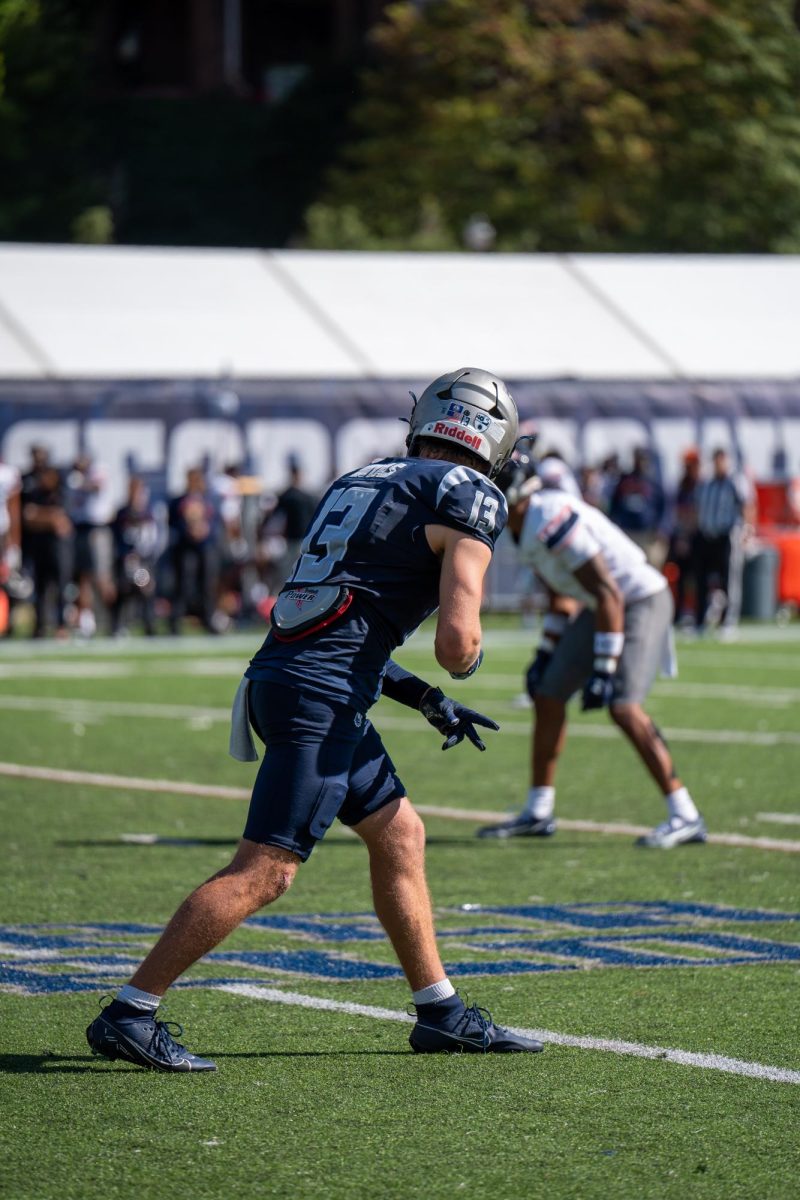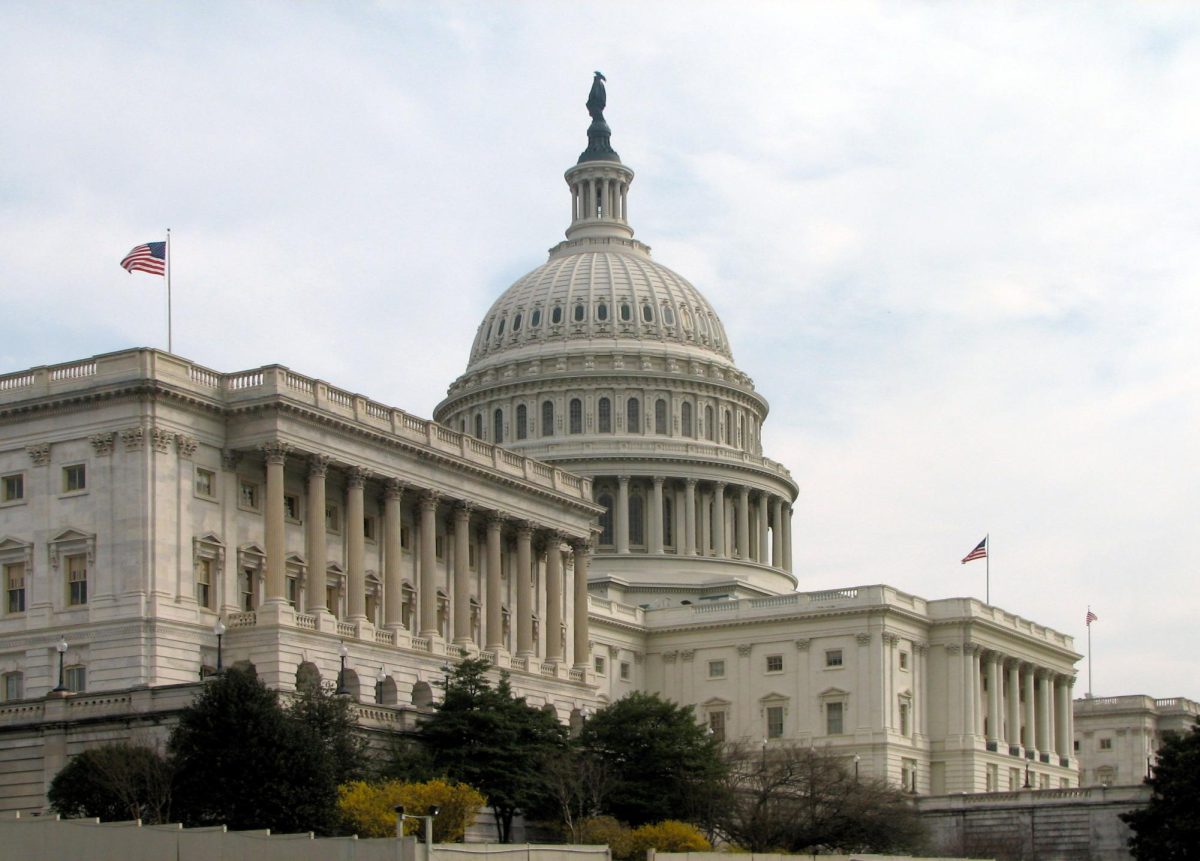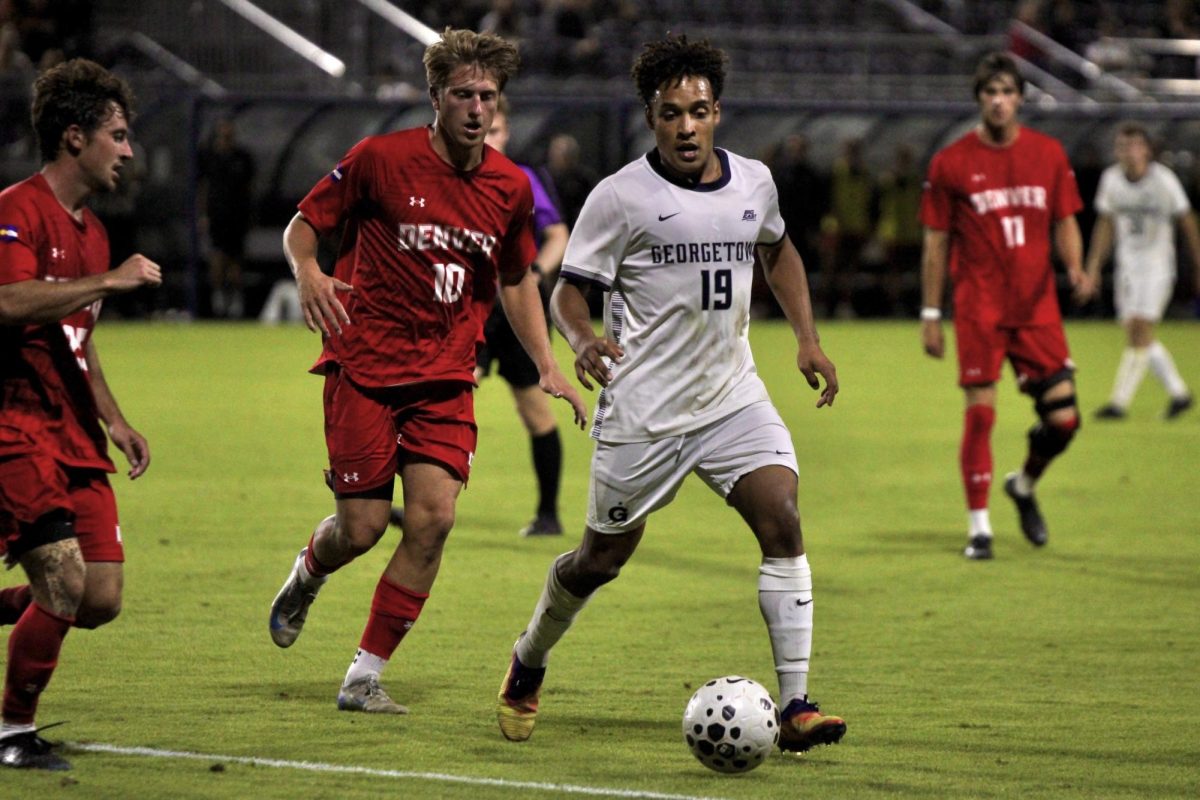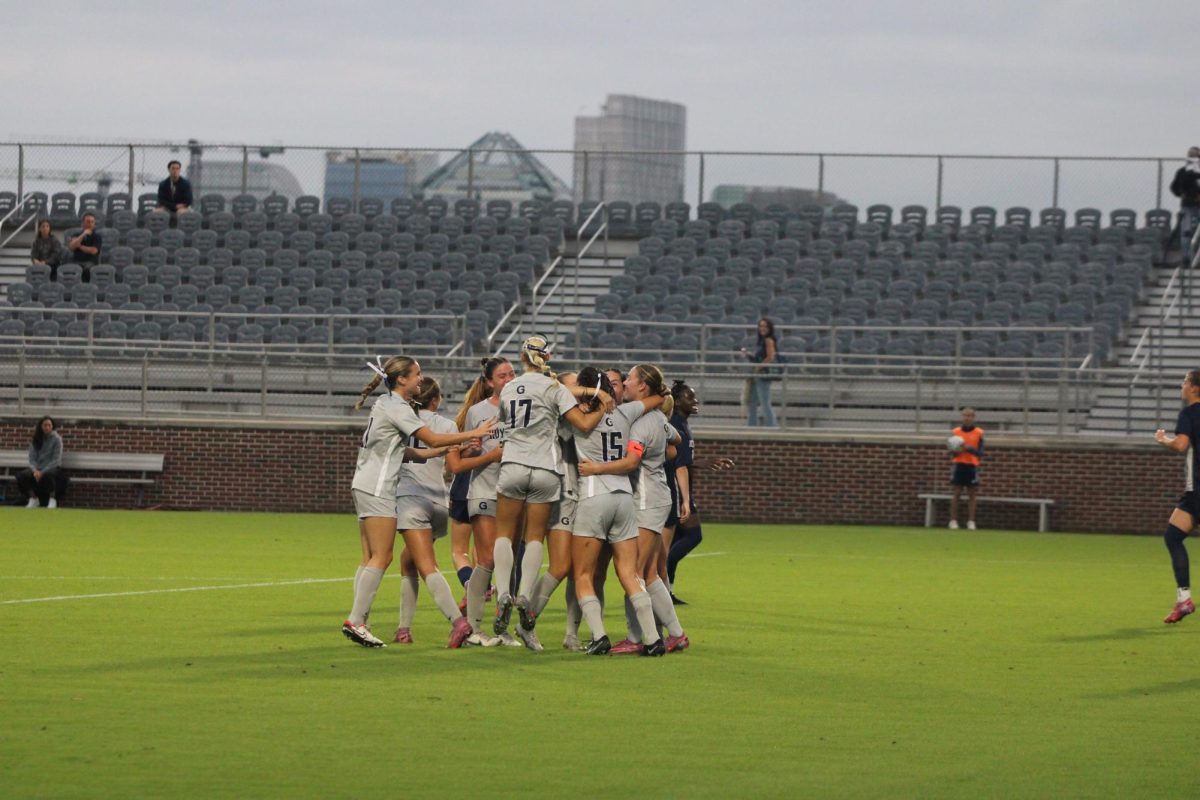Steve Phelps, the commissioner of NASCAR, discussed changing dynamics and increasing popularity in the field of professional auto racing at an event sponsored by the McDonough School of Business (MSB).
Phelps, who joined NASCAR in 2005 after an extended career both within and beyond the sports world, spoke to his personal and professional experience in conversation with Eric Petrosinelli, Georgetown University’s chief commercial officer.
Phelps at the Wheel
Phelps said he had a lifelong love of racing, which he attributed to his childhood experiences watching races near his hometown in Vermont.
“Motor racing in general, but NASCAR particularly, is a very sensory experience,” Phelps said at the event. “Sound is huge, smell, you can touch the car — it’s just a kind of sensory overload, and at five years old, I was hooked.”
After being named NASCAR’s president in 2018, Phelps oversaw a merger between NASCAR and the International Speedway Corporation, which operated many of NASCAR’s racetracks. After a number of significant business steps for NASCAR — surviving the COVID-19 pandemic, negotiating a seven-year, $7.7 billion media deal and introducing new races — under his leadership, Phelps assumed the title of commissioner in March to bring NASCAR in line with other professional sports.
Last fall, two teams, including the Michael Jordan-owned 23XI Racing, sued NASCAR alleging antitrust violations, instead of signing a charter agreement, which NASCAR uses to guarantee places in the sport and broadcast rights payouts. 23XI Racing and the other team, Front Row Motorsports, allege that the charter agreements do not distribute revenue fairly to the teams.
“There were four that were not signed,” Phelps said. “Those four representing two teams decided to sue us. To me, that was a failure on my part.”
In text messages revealed in court filings, Phelps wrote to NASCAR executives that a draft version of the agreement contained “zero wins for teams” and that the league was “dead in the water” if they proposed it. Litigation in that case continues, and it is set for trial early next year.
Shifting Gears
Phelps said NASCAR is looking to add Dodge to the four manufacturers currently racing. Currently, Ford, Chevrolet and Toyota field cars. Ram, whose parent company also owns Dodge, is set to join NASCAR’s truck series next year. Dodge, a longtime NASCAR manufacturer, left the sport in 2012 as the auto industry suffered in the aftermath of the 2008 financial crisis.
As part of negotiations to convince Dodge to rejoin NASCAR, Phelps said at the event that NASCAR is considering transitioning from the traditional V8 engine to a turbocharged V6 engine. V8 engines and their signature noise are part of NASCAR’s historical DNA, but they also use more fuel and are less common in modern road cars.
Phelps said he has to balance innovation in racing technology with the traditions that fans hold dearly.
“A turbo six will upset some of our race fans, because NASCAR is about bold, loud V8 engines,” Phelps said. “If you go away from that, what does that say about the brand?”
Phelps added that schedule variation is an important step in innovation, and he also hinted at potential new race venues.
“For 20 years, we raced at the same race tracks almost on the same day, and it was boring,” Phelps said. “We needed to create some excitement and schedule variation.”
NASCAR has recently raced in untraditional venues — the Los Angeles Memorial Coliseum and on the streets of Chicago, to name a few — and at international tracks, such as Mexico City’s Autódromo Hermanos Rodríguez. While the Coliseum and Mexico City races are not on next year’s schedule, Phelps said NASCAR plans to continue venturing abroad, singling out Montreal as a likely destination.
In recent years, Formula One — an international racing series bought by a U.S.-based company in 2017 — has seen a massive explosion in American viewership, in part due to a popular Netflix series and a recent blockbuster movie starring Brad Pitt. While NASCAR remains the United States’ most-watched motorsport, Formula One has begun to threaten its market share, including by adding two races in the United States in the past three years.
Phelps said he does not view Formula One as competition and is thankful for more racing fans.
“I actually like that they’re doing well and getting eyeballs, because those eyeballs will ultimately come to us as well,” Phelps said. “Our racing is just better than theirs, full stop. And that’s not a joke, that’s a fact.”
Phelps said June 2020 was “the most difficult professional month that I’ve ever had, and it ended up being the most rewarding that I ever had.”
On June 8, 2020, in the aftermath of George Floyd’s death, Bubba Wallace, who is the only Black driver in NASCAR’s top series, called on NASCAR to ban Confederate flags from all its events. Two days later, NASCAR banned the flags. At the time, NASCAR announced, “The presence of confederate flags at NASCAR events runs contrary to our commitment to providing a welcoming and inclusive environment.”
Just days later, on June 21, a member of Wallace’s team found a noose in Wallace’s garage stall; NASCAR immediately united around Wallace.
After a two-day investigation involving local and federal law enforcement, the noose was found to have been a pull rope for a garage handle that had been in that garage well before the race.
Phelps said the events of that month changed NASCAR’s trajectory forever, adding that NASCAR’s strong stance in favor of inclusivity disproved stereotypes about the sport and led to a younger, more diverse fan base.
“At the end of 2020, NASCAR was one of the 10 fastest growing brands with Gen Z,” Phelps said. “We have to keep innovating. We have to keep being bold in the decisions that we are making in order to meet you where you are.”














